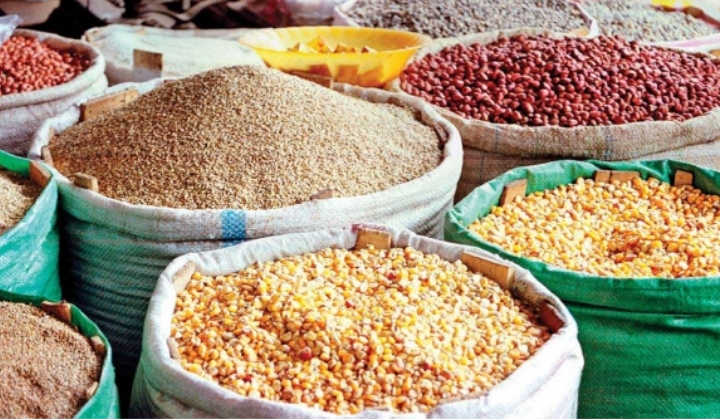
Tinubu Was Misled, Import Waiver Won’t Crash Food Prices - Buhari’s Ex-Aide

The ex-aide, who spoke on condition of anonymity, explained that the relationship between import waivers and food prices is not as straightforward as Tinubu made it out to be. "Import waivers can have some benefits, such as reducing the cost of importing certain goods, but it's not a magic bullet that will suddenly make food prices plummet," the ex-aide said.
The ex-aide pointed out that the Buhari regime has used import license restrictions as a tool to control the press in the past, and that this complex history adds a layer of nuance to the issue. "It's not just about the economic impact of import waivers, but also about the potential for political manipulation," the ex-aide noted.
The controversy surrounding import waivers and food prices has been ongoing for some time, with many stakeholders weighing in on the issue. While some argue that import waivers could help reduce food prices, others claim that it would have little to no impact.
The ex-aide's comments come at a time when the Nigerian economy is facing significant challenges, including high inflation and food prices. The government has been under pressure to find solutions to these problems, and the debate over import waivers has been a contentious one.
Tinubu's Claims
Tinubu had previously claimed that import waivers would lead to a significant reduction in food prices, citing the example of the United States, where import waivers have been used to reduce the cost of certain goods. However, the ex-aide argued that the Nigerian context is different, and that import waivers would not have the same impact.
Expert Analysis
Economic experts have also weighed in on the issue, with some arguing that import waivers could have unintended consequences, such as increasing the country's reliance on imported goods and undermining local production. "Import waivers can be a short-term solution, but they are not a sustainable way to address the underlying issues affecting the economy," said Dr. Kingsley Moghalu, a former deputy governor of the Central Bank of Nigeria.
Government Response
The government has yet to respond to the ex-aide's comments, but it is likely that the issue will continue to be debated in the coming days. As the Nigerian economy continues to face significant challenges, the debate over import waivers and food prices is likely to remain a contentious one.
Conclusion
The controversy surrounding import waivers and food prices is a complex one, with many stakeholders having different opinions on the issue. While Tinubu's claims that import waivers would lead to a crash in food prices may have been misleading, it is clear that the issue requires a nuanced and multifaceted approach. As the government and stakeholders continue to debate the issue, it is essential to consider the potential consequences of import waivers and to find sustainable solutions to the country's economic challenges.
https://www.channelstv.com/2025/01/12/tinubu-was-misled-import-waiver-wont-crash-food-prices-buharis-ex-aide/